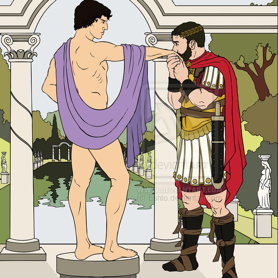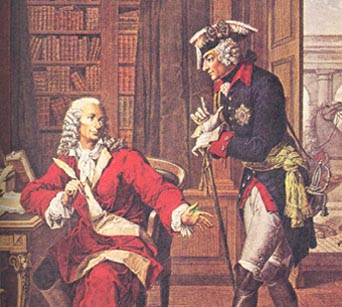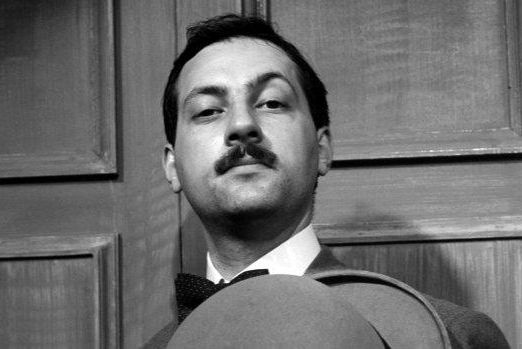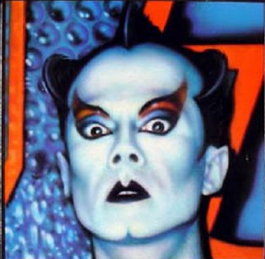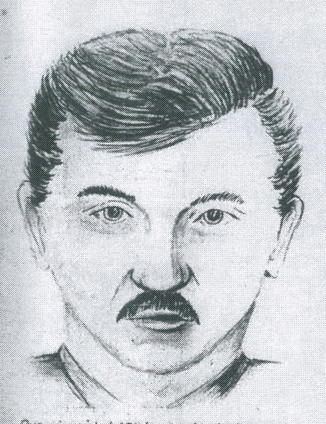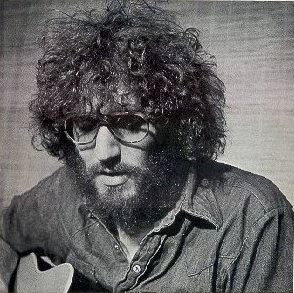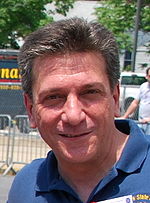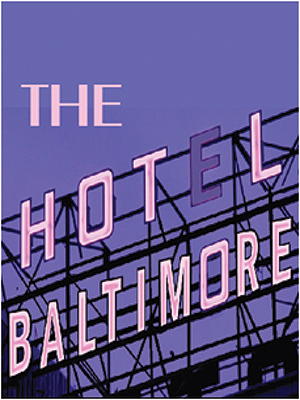|
presents THIS DAY IN GAY HISTORY based on: The White Crane Institute's 'Gay Wisdom', Gay Birthdays, Gay For Today, Famous GLBT, glbt-Gay Encylopedia, Today in Gay History, Wikipedia, and more …
Collected by Ted January 24 [{(o)}]|[{(o)}]|[{(o)}]|[{(o)}]| [{(o)}]|[{(o)}] 41 AD – Roman Emperor Caligula is assassinated at the Palatine Games by his own officers after a reign of only four years. He was noted for his madness and cruelty including arbitrary murder and arbitrary sex encounters with men, women, and animals, including forcing his officers into regular sex bouts.
76 AD – The Roman Emperor, Stoic and Epicurean philosopher Publius Aelius Traianus Hadrianus or as he has come down to us, Hadrian was born in Spain. Hadrian was the third of the "Five Good Emperors". His reign had a faltering beginning, a glorious middle, and a tragic conclusion. He is considered by many historians as the most versatile of all the Roman Emperors. He liked to display knowledge of all intellectual and artistic fields. Above all, Hadrian patronized the arts: Hadrian's Villa at Tibur (Tivoli) was the greatest Roman example of an Alexandrian garden, recreating a sacred landscape, lost in large part to the despoliation of the ruins by the Cardinal d'Este who had much of the marble removed to build Villa d'Este. In Rome, the Pantheon, originally built by Agrippa but destroyed by fire in 80, was rebuilt under Hadrian in the domed form it retains to this day. It is among the best preserved of Rome's ancient buildings and was highly influential to a many of the great architects of the Italian Renaissance and Baroque periods. Today we recall his abiding love of Antinous, his eromenos (boy lover), who he honored so greatly in death. It was while visiting Claudiopolis that Hadrian espied the beautiful Antinous, a young boy who was destined to become the emperor's eromenos — his beloved. Sources say nothing about when Hadrian met Antinous, however, there are depictions of Antinous that shows him as a young man of twenty or so. They became inseparable companions and carried out one of the most storied love affairs of history. 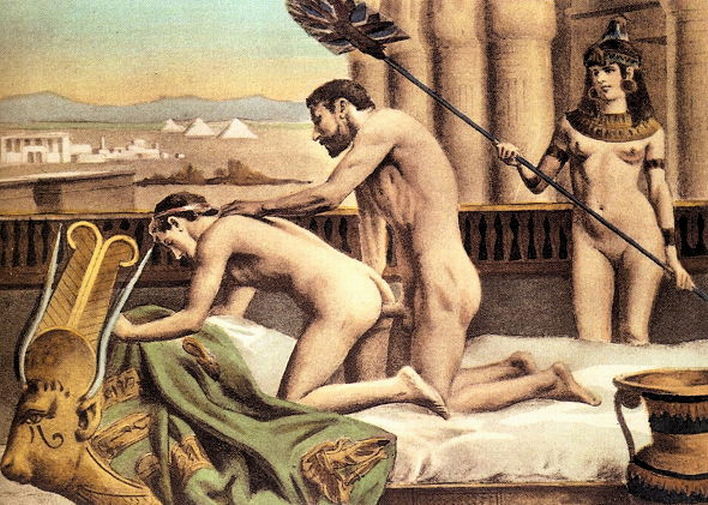 Hadrian and Antinous in Egypt (Click for larger) In October 130 AD, while Hadrian and his entourage were sailing on the Nile, Antinous drowned, for unknown reasons.
though accident, suicide, murder or religious sacrifice have all been postulated. After Antinous' death, Hadrian's grief knew no bounds, causing the most
extravagant respect to be paid to his memory. Cities were founded in his name, medals struck with his effigy, and statues erected to him in all parts of the
empire.
1712 – The Prussian King Frederick II, aka Frederick the Great, was born. (d.1786) Interested primarily in the arts during his youth, Frederick unsuccessfully attempted to flee from his authoritarian father, the "Soldier-King" Frederick William I. Young Frederick persuaded his lover, Hans von Katte, a Lieutenant in the Royal Guard, to help him flee the king's ruthless domination. They were captured and von Katte was sentenced to death. The prince was ordered to be present at von Katte's execution by sword. For another ten years Frederick had to live under the yoke of his tyrannical father and accept his arrangements for a marriage that was probably never consummated. (Upon his father's death in 1740, Frederick immediately separated from his wife, Elizabeth Christine of Brunswick.) Frederick was a proponent of enlightened absolutism. For years he was a correspondent of Voltaire, with whom the king had a turbulent friendship. Voltaire was later to write a book exposing Frederick's homosexuality, but it was published only in 1784, six years after its author's death. In his correspondence with Voltaire, Frederick early on evinced a great interest in what we would today call gay culture. In an astonishingly open fashion, this interest was encouraged by Voltaire. It was not only through literature that Frederick extolled homosexuality. He collected ancient artwork, notably ancient carved gemstones picturing nude athletes and the Adoring Youth, a Hellenistic bronze that had previously belonged to another famous homosexual general, Prince Eugene of Savoy, which he placed in view of his library window. He commissioned frescoes of Ganymede for his palaces; and, in 1768, inspired by Voltaire's poem bearing that title, had a Temple of Friendship built in his garden at Potsdam, inscribed with the names of lovers and friends of antiquity, such as Orestes and Pylades and Nisus and Euryalus. Apart from Katte, a few of Frederick's great loves are known: Fredersdorf, the handsome guard assigned to him after his escape, who eventually became his Majordomo; Count Algarotti, the seductive Italian writer; and the abbé Bastiani, a Venetian who was made Canon of Breslaw (Wroclaw) Cathedral and who did not hesitate to show his compatriot Casanova the love letters he had received from the king. Close to him also, but showing the same tastes in a more outrageous manner, was his brother Prince Henry. Voltaire called him a Potsdamite (that is, a Sodomite), and he was reputed to recruit only homosexuals in his regiments. The philosopher Diderot, well informed and not prone to exaggeration, wrote in March 1760 a note on Frederick in which he says: "The only one thing that this admirable flute player was missing was a mouthpiece that should have been a little cleaner." He also penned a poem entitled Parallèle between Caesar and Frederick (undated) that includes the statement: "Caesar was generous, Frederick is miserly. When I compare them I see but one point in common, namely that they were both buggers. But there wasn't a Roman lady who was worthwhile with whom Caesar did not sleep, whereas His Prussian Majesty never touched a woman, not even his own wife." The works of Niccolò Machiavelli, such as "The Prince," were considered a guideline for the behavior of a king in Frederick's age. In 1749, Frederick finished his Anti-Machiavel — an idealistic writing in which he opposes Machiavelli. It was published anonymously in 1740, but Voltaire distributed it in Amsterdam to great popularity. Under Frederick, Immanuel Kant published religious writings in Berlin which would have been censored elsewhere in Europe. Frederick had famous buildings constructed in his capital, Berlin, most of which still exist today, such as the Berlin State Opera, the Royal Library, St. Hedwig's Cathedral, the French and German Cathedrals on the Gendarmenmarkt, and Prince Henry's Palace (now the site of Humboldt University). However, the king preferred spending his time in his summer residence Potsdam, where he built the palace of Sanssouci, the most important work of Northern German rococo. Sanssouci, which translates from French as "carefree" or "without worry", was a refuge for Frederick, where he surrounded himself with freethinking men—no women were allowed—many of whom, such as Count Algarotti or the philosopher La Mettrie, were homosexual. Voltaire describes the utter freedom of their suppers there (for instance, discussing Plato's theory of the Androgynes) and the exact way in which Frederick would pick handsome soldiers for his sexual "schoolboy games." Near the end of his life Frederick grew increasingly solitary. His circle of male friends at Sanssouci gradually died off without replacements, and Frederick became increasingly critical and arbitrary, to the frustration of the civil service and officer corps. The populace of Berlin always cheered the king when he returned to the city from provincial tours or military reviews, but Frederick took no pleasure from his popularity with the common folk, preferring instead the company of his pet Italian greyhounds, whom he referred to as his 'marquises de Pompadour' as a jibe at the French royal mistress. Frederick died in an armchair in his study in the palace of Sanssouci on 17 August 1786.
Gustav was educated under the care of two governors who were amongst the most eminent Swedish statesmen of the day, Carl Gustaf Tessin and Carl Fredrik Scheffer; but he owed most perhaps to the poet and historian Olof von Dalin. His education was far more liberal than that of his uncle, Frederick the Great. On the whole, Gustav cannot be said to have been well educated, but he read very widely; there was scarcely a French author of his day with whose works he was not intimately acquainted;and his enthusiasm for the new French ideas of enlightenment was sincere. A vocal opponent of abuses by the nobility, he seized power from the government in a coup d'état in 1772, ending the Age of Liberty and venturing into a campaign to restore royal autocracy. As a bulwark of enlightened despotism, his expenditure of considerable public funds on cultural ventures contributed to his controversial rule. Attempts to seize first Norway through Russian aid, then to recapture the Baltic provinces through a war against Russia were unsuccessful, although much of Sweden's former military might was restored. An admirer of Voltaire, Gustav legalized Catholic and Jewish presence in the realm and enacted wide-ranging reforms aimed at economic liberalism, social reform and the abolishment of torture and capital punishment (although freedom of the press was curtailed). A patron of the arts and benefactor of arts and literature, Gustav founded several academies, among them the Swedish Academy, created a National Costume and had the Royal Swedish Opera built. In 1772 he founded the Royal Order of Vasa to acknowledge and reward those Swedes who had helped to advance process in the fields of agriculture, mining and commerce. By proxy in Christiansborg Palace, Copenhagen, on 1 October 1766 and in person in Stockholm on 4 November 1766, Gustav married Princess Sophia Magdalena, daughter of King Frederick V of Denmark. The match was not a happy one, owing partly to an incompatibility of temper; but still more to the interference of the jealous Queen Mother. The marriage produced two children: Crown Prince Gustav Adolf , and Prince Carl Gustav, Duke of Småland. For the consummation of the marriage, the king requested the assistance of Adolf Munck, reportedly because of anatomical problems both spouses possessed. Gustav's mother supported rumors that he was not the father of his first son and heir. It was rumored at the time that Gustav indulged in homosexuality. The close personal relationships he formed with two of his courtiers, Count Axel von Fersen and Baron Gustav Armfelt, were alluded to in that regard. His sister-in-law implied as much in a diary. Gustav was assassinated at a masked ball by a conspiracy of noblemen claiming only to commit tyrannicide, although later research has revealed more personal motives.
Although he wanted to be a circus clown, Serrault's parents sent him to a seminary to study for the priesthood. He spent only a few months there before taking-up acting. His first professional job was in a touring production in Germany of Molière's Les Fourberies de Scapin. After military service in Dijon, he returned to Paris and joined Robert Dhéry's burlesque troupe and appeared in their second hit show, Dugudu. In 1948, he began his career in the theatre with Robert Dhéry in Les Branquignols. His first film was Ah! Les belles bacchantes, starring Robert Dhéry, Colette Brosset (Dhéry's then-wife), and Louis de Funès in 1954. Serrault played in the 1955 suspense thriller Les diaboliques, starring Simone Signoret and directed by Henri-Georges Clouzot. He met and worked with Jean Poiret in the early 1950s, which led to a song and comedy cabaret act and their playing together in 18 films from 1956 to 1984, and in a number of plays written by Poiret. The films they worked together in included Cette sacrée gamine (1956), with Brigitte Bardot, and Sacha Guitry's last film, Assassins et voleurs (1957). From February 1973 through 1978, he portrayed the role of Albin/Zaza opposite Jean Poiret in the play La cage aux folles, written by Poiret. He recreated the role for the film version of the play, which was released in 1978. Serrault died from relapsing polychondritis at his home in Équemauville on 29 July 2007 at age 79.
1932 – Henri Nouwen (Nouen), (d.1996) was a Dutch-born Catholic priest and writer who authored 40 books about spirituality. Nouwen's books are still being read today. His books include The Wounded Healer, In the Name of Jesus, Clowning in Rome, The Life of the Beloved and The Way of the Heart. After nearly two decades of teaching at the Menninger Foundation Clinic in Topeka, Kansas, and at the University of Notre Dame, Yale University and Harvard University, he went to work with mentally challenged people at the L'Arche community of Daybreak in Toronto, Canada. While visiting the community, he saw a photograph of Rembrandt's "The return of the prodigal son", that made a deep impression on him. He decided to see the painting personally and traveled to Saint Petersburg (Leningrad at that time) to visit the Hermitage Museum where it is kept. This resulted in a several day contemplation of the painting, and the book of the same name, probably his most famous. Nouwen is thought to have struggled with his sexuality. "Although his homosexuality was known by those close to him, he never publicly claimed a homosexual identity." Although he never directly addressed the matter of his sexuality in the writings he published during his lifetime, it is said that he acknowledged the struggle both in his private journals and in discussions with friends, both of which were extensively referenced by Michael Ford in the biography Wounded Prophet, which was published after Nouwen's death. Ford suggests that Nouwen only became fully comfortable with his sexual orientation in the last few years of his life, and that Nouwen's depression was caused in part by the conflict between his priestly vows of celibacy and the sense of loneliness and longing for intimacy that he experienced. Ford conjectured, "This took an enormous emotional, spiritual and physical toll on his life and may have contributed to his early death." There is no evidence that Nouwen ever broke his vow of celibacy.
1944 – German performance artist and counter-tenor Klaus Nomi was born in Immenstadt, Germany (d.1983). Nomi is remembered for bizarrely theatrical live performances, heavy make-up, unusual costumes, and a highly stylized signature hairdo which flaunted a receding hairline. His songs were equally unusual, ranging from synthesizer-laden interpretations of classic opera to covers of 1960s pop standards like Chubby Checker's "The Twist" and Lou Christie's "Lightnin' Strikes." Born Klaus Sperber in Immenstadt, Germany, in Nomi's youth in the 1960s, he worked as an usher at the Deutsche Opera in West Berlin where he would sing on stage in front of the fire curtain after the shows for the other ushers and maintenance crew. Around that time he also sang operatic arias at a Berlin Gay club called Kleist Casino. Nomi moved from Germany to New York City in the mid-1970s. He began his involvement with the art scene based in the East Village. Nomi died on August 6, 1983 in New York City, one of the first celebrities to die of an illness complicated by AIDS. His ashes were scattered over New York City.
1951 –Tadeusz Kwaśniak, born in Lądek-Zdrój (d.1991), known as the "Towel Strangler", was a Polish pedophile and serial killer, who raped boys and murdered 5 of them all over Poland between April 1990 and April 1991. He was first reprimanded for committing lecherous acts with girls, spending a total of 12 years behind bars. After leaving Wronki Prison, Kwaśniak began a series of thefts, rapes and murders of young boys. The first attempt took place on April 20, 1990 in Bytom on Budryka Street. Under the pretense that he had received an envelope from the 10-year-old victim's father, Kwaśniak managed to enter the child's apartment. There, he began to strangle the boy with a towel, but the boy pretended to be dead. After the perpetrator left the flat, the boy informed his parents about the event. On May 7, 1990 in Radom, he robbed and murdered a 10-year-old boy. As before, he used a towel to strangle his victim. On May 24, 1990 in Wroclaw, he attempted to rob, rape and murder an 11-year-old boy. He accosted the boy on the street, and under the pretense of picking up an envelope from the victim's apartment, he managed to enter the apartment. There he explained that he was going to take revenge on his father because he got Kwaśniak fired. He raped the boy, and then began strangling him with a towel. The boy fainted, but managed to survive. The perpetrator sent a letter to the flat: "Revenge! I waited 14 years!" On May 31, 1990, he carried out another murder in Szczecin. He strangled a 9-year-old boy with a towel, leaving a card next to the corpse which said: "Revenge, finally - Z." On June 6, 1990, another boy was murdered in Kutno. Kwaśniak strangled him with a towel, after which he robbed the apartment. After that, he wrote 'Revenge' on the bathroom mirror with lipstick. On June 18, 1990, he robbed and then murdered a 9-year-old on Szymanowski Street in Oława. The boy was strangled with a towel, and found next to him was a card with the inscription "Finally, I made the expected revenge -B." was left. On January 3, 1991, he made a robbery on Topolowa Street in Zbąszyń. He tricked the boy into letting him into the apartment, and then stole money, a revaluation voucher and an insurance card. Thanks to the boy, a description of the perpetrator was established, which matched the descriptions made on the basis of witness testimonies from previous acts: a man aged 30-35, well-built, a height of 1,75 cm., dark hair and carrying a weapon. On February 26, 1991, in Rataje, he robbed and murdered a 12-year-old boy. The boy was strangled with a towel. Witnesses who saw the man talking with the boy were quickly established, and it was possible to determine how the perpetrator dressed. The police action to catch the murderer had the code name of Revenge. On the basis of all data, in February 1991, it was possible to connect all murders to one man. The police in Poznań collected details from previous murders, and commissioned sexologist Lechosław Gapik to develop a psychological portrait of the perpetrator. The issue was publicized by the "997" publivision program, which reconstructed the murders and gave the perpetrator a modus operandi and portrait. Thanks to these actions, it was established that the perpetrator had accosted boys in Rataje for a few days, with whose help a facial composite was made and published on the media, as well as at bus stops and in taxis. For any help in catching the perpetrator, the Provinicial Police Chief of Poznań set a prize of 5,000,000 Polish złoty. Despite this, on March 7, 1991 in Wrocław, Kwaśniak raped another boy. Under the pretext of giving the parents of the boy a letter from his aunt who lived abroad, he managed to enter the apartment. On April 18, 1991, he attacked once again in Sosnowiec, but his victim managed to survive. On April 22, 1991, the police in Poznań received a signal from the headmaster of Primary School No. 6 on the Rusa Housing Estate about students who were being accosted by a suspicious man. Later, the same application was made by a woman who, during a walk around the estate, noticed that same strange man. As a result of this, the man was soon detained on one of the residential streets. During the interrogation, the man, who turned out to be Kwaśniak, admitted to the murders in Oława, Kutno, Szczecin, Radom and Poznań, to the attempted murders in Bytom and in Wrocław, and to the rape in Sosnowiec. He also admitted to several dozen apartment thefts, including in Słupsk, Białystok, Lublin, Kraków, Częstochowa, Bydgoszcz, Szczecin and Wejherowo. On July 24, 1991, Kwaśniak committed suicide in his prison cell, hanging himself.
1951 – Michael Cohen (d.1997) was an American singer-songwriter from New York City. He released three albums in the 1970s which were among the first to deal with explicitly gay themes. Cohen was licensed as a cab driver in New York City in 1972. Cohen self-released his first album, eponymously titled Mike Cohen, in 1972. This was followed by two albums on Folkways Records, "What Did You Expect: Songs about the Experiences of Being Gay" (1973) and "Some of Us Had to Live" (1976). The latter two are available from Smithsonian Folkways. Cohen was influenced by James Taylor and Leonard Cohen (no relation) and his music is very much in the folk rock style. "What Did You Expect: Songs about the Experiences of Being Gay" consisted of nine songs that recounted Cohen's coming-out experience, ballads about his lover and a cover of a song by Leonard Cohen (no relation). "The Last Angry Young Man", which opens What did You Expect?, deals with the misconceptions around homosexuality of the older generation while "Gone", from the same album, deals sensitively with the death of a gay friend. Frieze Magazine describes Cohen's "Bitterfeast" from the same album as a "raw and chokingly emotional" ballad based on a poem by Leonard Cohen. After releasing a third album on a small label, Cohen "dropped off the radar" until his death in 1997. You can read some of his lyrics in his own hand here: Queer Music Heritage
1958 – Benny Medina is the CEO of The Medina Company and son of the jazz drummer Ahmad "Benny" Medina. He has worked in the music business as a producer, talent manager and record executive. He has been involved in the careers of a variety of recording artists and performers throughout his career. Medina attended Beverly Hills High where he met Kerry Gordy. The antics/escapades of Medina living with the Dotson family is the basis for the 1990 Will Smith show Fresh Prince of Bel-Air. Medina started his career with the group Apollo, who released their self-titled debut on Gordy/Motown in 1979. Medina was the lead singer, other members included Kerry Gordy (keyboards), Cliff Liles (bass), Lenny Greene (drums) and Larry Robinson (guitar). Medina co-wrote three of the seven tracks, including "Astro Disco," for which they are best known. The album was produced by Ray Singleton, former wife of Motown founder Berry Gordy. At age 24, Medina became the head of A&R for Motown, working as a protégé to Berry Gordy. Under Gordy, Medina wrote and produced for legendary Motown acts such as The Temptations, Smokey Robinson, Billy Preston, Rick James and Teena Marie. Medina then moved on to Warner Bros. Records, where executive Mo Ostin tasked him to build and cultivate the careers of the company’s urban artists as VP/GM of its urban-music division. After leaving Warner Bros., Medina and longtime friend Jeff Pollack formed Medina/Pollack Entertainment, which grew into a full service management and production company. They masterminded a variety of projects, including Booty Call, Above the Rim, and Maid in Manhattan. In early 2009, Benny Medina formed another company called the Medina Company. Medina is best known for managing actress/singer/dancer Jennifer Lopez. In November 2017, actor Jason Dottley accused Medina of attempting to rape him in December 2008. Dottley stated the event happened at Medina's Los Angeles mansion after Medina gave Dottley and fellow actor T. Ashanti Mozelle a tour of the home. Dottley stated in an interview with The Advocate that Anthony Rapp's recent sexual assault allegations against Kevin Spacey inspired him to come out with his "shameful secret." Through his attorneys, Medina said in a statement, "[he] categorically denies the allegation of attempted rape." Medina is gay. In March 2007, he was ranked as one of Out.com's Top 50 Gays, coming in at spot 48.
1961 – Matthew Titone is an American politician and lawyer from Staten Island, New York. A Democrat, he serves as a member of the New York State Assembly from the 61st District, on Staten Island's North Shore. Titone garnered national attention when he took on the New York State adoption industry representing a family who adopted a baby boy. The family was never informed by the adoption agency that the child was born with the AIDS virus and resulted in the child being untreated for his illness for eleven years after the adoption was completed. Not only did Titone provide legal support and guidance for the family, he also helped the young man establish the Justin LiGreci HIV/AIDS Foundation for Children and Teens, a not for profit organization that provides educational services to the youth of Staten Island and New York metropolitan area. Titone is openly gay and married his partner of 18 years, Giosue Pugliese, in a ceremony at Staten Island Borough Hall in September 2011, shortly after same-sex marriage was legalized in New York State. He is one of six LGBT members of the New York Legislature, alongside Assemblymembers Deborah Glick, Daniel O'Donnell, Micah Kellner and Harry Bronson, as well as Senator Brad Hoylman. His assembly campaigns have won the support of the Gay & Lesbian Victory Fund, which provides financial and strategic assistance.
1975 – Norman Lear's trail-blazing, groundbreaking, though, alas, short-lived series "Hot L Baltimore" premiered on this date. The television situation comedy series was adapted from the hit off-Broadway play by Lanford Wilson and took place in the "Hotel Baltimore" in Baltimore, Maryland and drew its title from the cheap establishment's neon marquee, which had a burned-out letter "e" that had never been replaced. The half-hour series premiered January 24, 1975 and was produced by Norman Lear for ABC. (It was, in fact the first Norman Lear property to air on ABC.) The cast included Conchata Ferrell, James Cromwell, Richard Masur, Al Freeman, Jr., Gloria LeRoy, Jeannie Linero, and Charlotte Rae. The series had several controversial elements, including two primary characters who were prostitutes (one of whom was an illegal immigrant) and one of the first gay couples to be depicted on an American television series. George (Lee Bergere) and Gordon (Henry Calvert) were middle-aged gay lovers in their fifties. Because of the story lines the show was the first network television show to have a warning at its opening, cautioning viewers about mature themes. The network supported the show and gave it a full publicity campaign, but it failed to win an audience and was canceled after thirteen episodes; its last telecast was June 6, 1975.
1983 – Frank James Michael Grande Marchione , usually credited as Frankie Grande, is an American musical theatre actor, producer and YouTube personality. Grande was born in New York City. He grew up in Englewood, New Jersey and moved with his mother to Boca Raton, Florida, at age 10. His half-sister is singer and actress Ariana Grande. He graduated from Muhlenberg College in Pennsylvania in 2005, having triple-majored in biology, theatre and dance. Grande is openly gay. He began his acting career in 2007, appearing as Boots the Monkey in a national tour of Dora the Explorer Live! (Dora's Pirate Adventure) and in regional theatre productions including the title role in George M!, Mike Costa in A Chorus Line and Lewis in Pippin, among others. Later in 2007, he joined the Broadway cast of the musical Mamma Mia!, in the ensemble and as understudy for Eddie, in which he performed for three years. Grande was named "Mr. Broadway" in the "Mr. Broadway 2007" charity benefit. He co-founded the non-profit arts organization "Broadway in South Africa", travelling to South Africa to work with disadvantaged youth for seven years, before it merged with buildOn. Grande also helped buildOn to build a school in a rural village in Malawi, and in 2014 buildOn honored him for his efforts with its Global Impact Award. Grande has produced shows on and off Broadway, including Broadway productions of Hamlet (2009) starring Jude Law, La Bête (2010–11) starring David Hyde Pierce, and Born Yesterday (2011) starring Jim Belushi. He also produced Brooke Shields' one-woman cabaret show in 2011. Grande has performed in cabaret acts in New York City, including at Birdland Jazz Club and 54 Below. In 2012, Grande established a YouTube channel and has also been building a following on Twitter and Instagram. Earlier in 2014, he was a contestant on the reality television series Big Brother 16. His philanthropic work includes co-founding the non-profit arts organization "Broadway in South Africa" and work for buildOn.
[{(o)}]|[{(o)}]|[{(o)}]|[{(o)}]| [{(o)}]|[{(o)}] |
